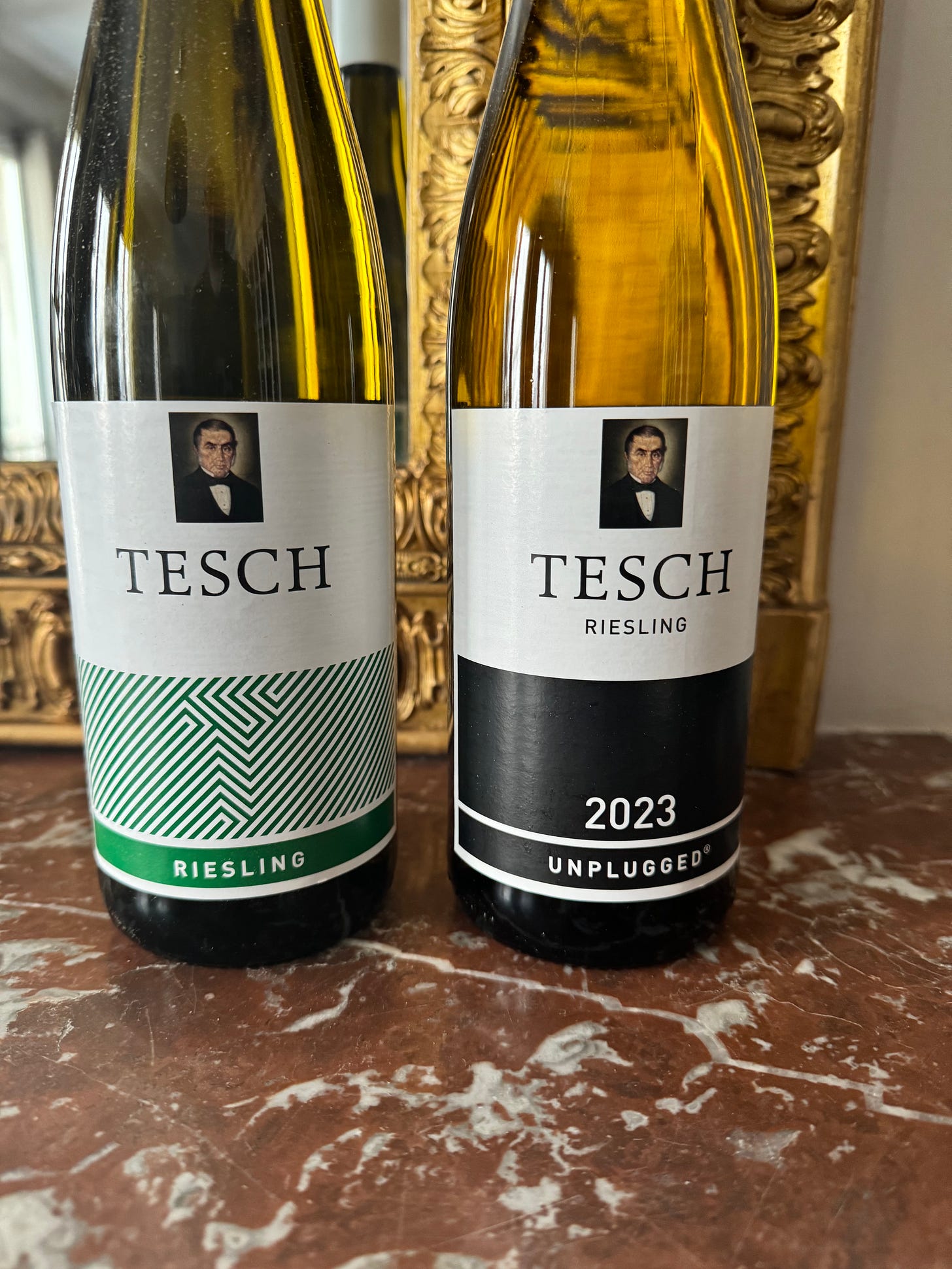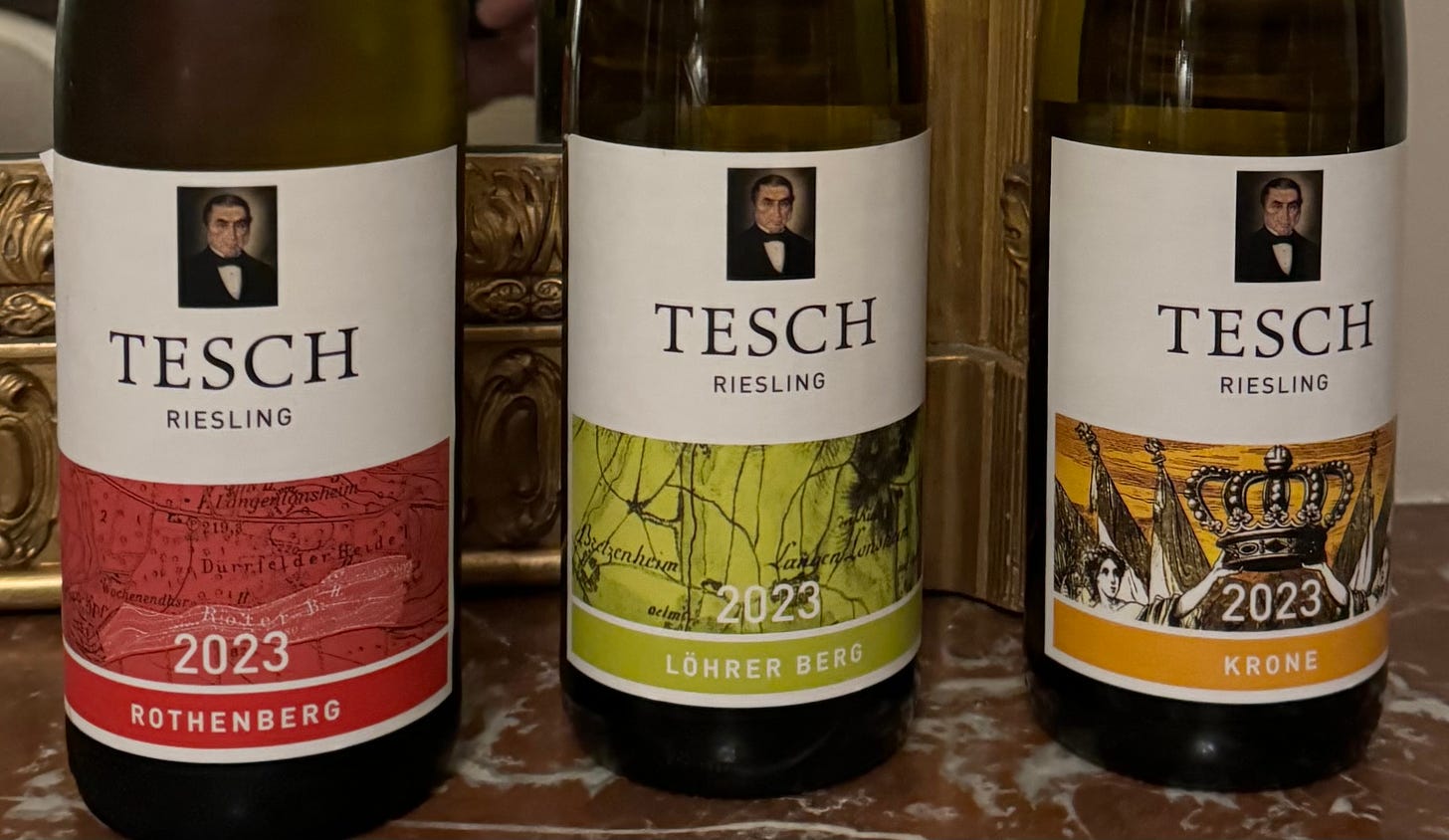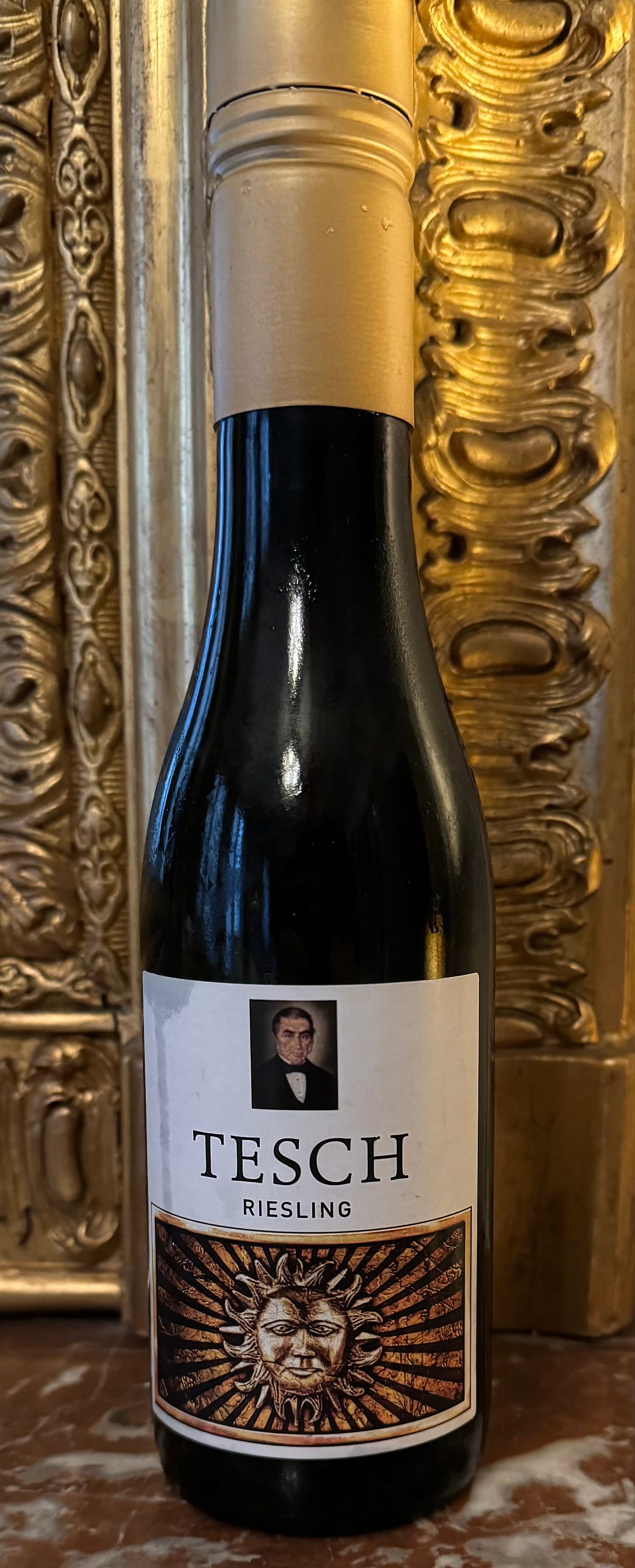Martin Tesch pulled his estate out of the prestigious VDP organization because he felt it didn’t work for his marketing plan. But there is no doubt that his wines remain on the high level that one expects from VDP members.
The first two wines here are entry-level dry (trocken) Rieslings, the next six are single vineyards that one can consider the equivalents of VDP Grosses and Erstes Gewächs wines; and finally, there is an Auslese this year.
The vintage here, as elsewhere in Germany, was marked by the extremely rapid ripening at harvest, meaning some decisions had to be made to prioritize what could come out best. The best producers generally are able to produce good wines in spite of adverse conditions, and that certainly is what happened here (although not for all of Germany).
The resulting wines have moderate acidity, but because of good malic acidity nonetheless have good bite to them.
Tesch makes the single vineyard wines with the expectation that they will begin to be drunk in five years. As a result, especially in this vintage, those wines can be a little disjointed when initially opened; if you are planning on serving them now, I suggest opening the bottles early and even decanting them beforehand to allow for aeration.
These are very good wines, indeed, unexpectedly good given the conditions of the vintage.
2023 Riesling (trocken)
This wine is from younger vines. It is medium-full bodied with a good acidic feel (the vintage is relatively low in total acidity but also low in pH). There’s pleasing lemon-lime fruit here, making for a good wine for aperitifs and simple food such as roast chicken. Screw cap closure. 12.5% stated alcohol. Last digits of A.P. Nr.: 02 24. 87/B-
2023 Riesling (trocken) “Unplugged”
The “Unplugged” is made from older vines than the preceding wine, and it is less immediately open, and although there is good grip here, this wine comes off as less aggressive in its bite. There’s a noble austerity here and some chalkiness. Screw cap closure. 12.5% stated alcohol. Last digits of A.P. Nr.: 11 24. 90/B+
2023 (Langenlonsheimer) Rothenberg Riesling (trocken)
The Rothenberg is a medium-weight wine with a bit of strawberry fruit and some zip to it. But I don’t find the precision and dimension of a still better wine. Screw cap closure. 13.0% stated alcohol. 10 24. 90/B+
2023 (Langenlonsheimer) Löhrer Berg Riesling (trocken)
Lime blossom nose. Medium-light body, pure lime fruit, elegant, strong malic acidity. Screw cap closure. 13.0% stated alcohol. Last digits of A.P. Nr.: 06 24. 93/A
2023 (Laubenheimer) Krone Riesling (trocken)
The Krone is not quite as ripe and shows a bit better balance and rounder acidity than the preceding wines. There’s some chalk here in the nose and mouth to go with lemon-based fruit. This might be a wine to drink a bit younger than the other single vineyard wines. Screw cap closure. 12.5% stated alcohol. Last digits of A.P. Nr.: 05 24. 92/A
2023 (Langenlonsheimer) Königsschild Riesling (trocken)
The Königsschild shows finesse with grapefruit aromas and flavors, a medium-weight body, and overall roundness, but it also has a structure typical of limestone soils. Screw cap closure. 13.0% stated alcohol. Last digits of A.P. Nr.: 07 24. 92+/A
2023 (Laubenheimer) Karthäuser Riesling (trocken)
Tropical notes in this wine with a rich texture but light on the palate. This wine is very open already but still should improve. Screw cap closure. 13.0% stated alcohol. Last digits of A.P. Nr.: 08 24. 92+/A
2023 (Laubenheimer) St. Remigiusberg Riesling (trocken)
The St. Remigiusberg is the the wine with the greatest density and fullness, although it does not in any way lose its balance. For the moment, the wine features edgy citric fruits, but it has a very good development ahead of it. Screw cap closure. 12.5% stated alcohol. Last digits of A.P. Nr: 09 24. 93(+)/A
2023 Riesling Auslese “Sonne” (gold capsule)
This wine is light in body but has botrytised golden fruits and is sweet without being overly so. Screw cap closure. 7.0% stated alcohol. Last digits of A.P. Nr.: 1923. 92/B+






